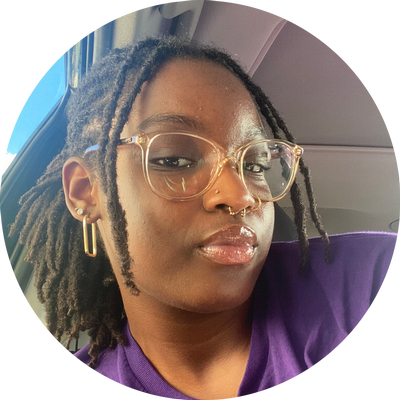Chioma Osodi-Nwomeh
MALAS
Conflict, Peace, and Rights

Chioma is a Nigerian-American who was raised in Columbus, OH. She graduated from American University with an honors degree in political science, as well as a Certificate in Spanish translation. After beginning Spanish classes in 8th grade and hearing stories about her mother’s journey in Latin America before eventually landing in the US, Chioma is only continuing to build upon her longtime fascination with the history and cultures of Latin America. Chioma chose to pursue an MA in Latin American Studies at UNM to learn in an environment that celebrates latinidad and indigenous cultures.
The diversity of Chioma’s undergraduate studies allowed her to explore the efficacy of democratization through a comparative lens with her concentration in comparative politics, as well as a comprehensive study of Spanish linguistics. Chioma has immersed herself in Latin American communities through a study abroad trip to Costa Rica, a long term volunteer partnership with a DMV-based and Latin American-centered food justice initiative, and an internship at a Latin American bilingual school in Washington DC. This year, as part of her assistantship, she will be teaching Spanish I through the Spanish and Portuguese Department.
Chioma’s Spanish senior capstone research project focused on how nuances in the type(s) of Spanish spoken by Afrolatinos can lead to subpar medical treatment in the US as a result of rigid Spanish medical translation strategies. During her time at LAII, Chioma is determined to shed light on more issues affecting Black populations in Latin American communities. As political intolerance and xenophobia continue to threaten the meaning of citizenship in the US, at LAII, Chioma hopes to explore what this means for the future of Latinos in the US, as well as how a weakened relationship with the US government could affect politics in Latin American countries. As an aspiring immigration attorney, Chioma feels it’s important as an outsider to Latin American culture for her to familiarize herself with the largest immigrant population in the US.
